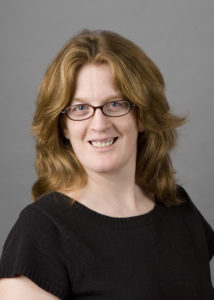Erin Davis, Cornell College – LGBTQ Homeless

Erin Davis Portrait
The homeless face additional challenges when they are LGBTQ.
Erin Davis, professor of sociology at Cornell College, looks into why homeless LGBTQ individuals face an even greater challenge.
Professor of Sociology Erin Davis explores cultural diversity and social inequalities, focusing on gender, sexualities, bodies, and identities in her courses and research at Cornell College in Mount Vernon, Iowa. Many courses include guest speakers, involve field trips or off-campus travel, or incorporate public sociology projects. Professor Davis also works closely with students on their research and has sponsored student presentations at the Iowa Sociological Association meetings and the Midwest Sociological Society meeting. Davis is currently the Associate Dean of Cornell College. She has a Ph.D. in Sociology from the University of Virginia.
LGBTQ Homeless
Many communities have resources and programming for homeless individuals and families, but one group is finding there aren’t many options.
A service provider from Cedar Rapids, Iowa came to us with concerns about LGBTQ homeless youth.
Professor Misha Quill and I worked with undergraduate students and community members, including homeless individuals, service providers, and other non-profit organizations. We collected data through the anthropological and sociological techniques of field research and interviews and then analyzed the data to assess community needs.
Cedar Rapids is a community of about 130,000 people in eastern Iowa, including approximately 400 homeless individuals, although surveys tend to under-represent homelessness, in general, and even more so youth homelessness.
LGBTQ youth are disproportionately likely to be homeless due to tensions among family members about gender or sexual identities. There are often particular challenges for these youth because of cultural beliefs, community values, and conflicts with parents or foster parents. While all homeless youth face risks, research shows that LGBTQ homeless youth have higher rates of mental health and substance abuse problems, and face much higher rates of assault, sexual victimization and harassment than the general population.
In our community action study, we found a lack of general community awareness and a lack of specialized services for LGBTQ youth. In addition, more homeless youth outreach workers and homelessness prevention follow-up services are needed.
Our team plans to continue building relationships and working on this issue for years to come, hoping to make a difference for the homeless population in Cedar Rapids.


